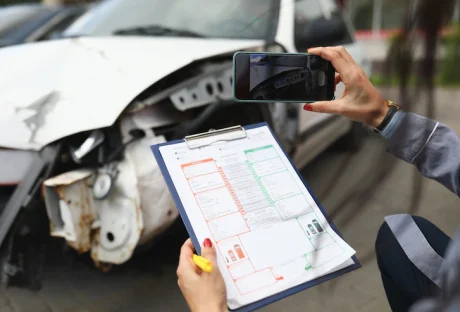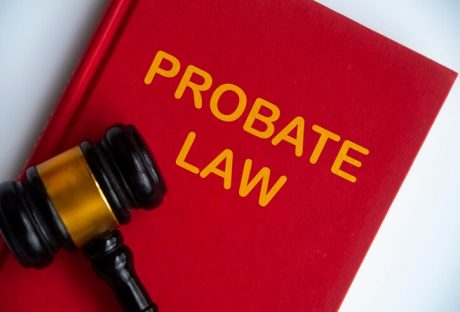As much as we enjoy close and loving family relationships, sometimes, disputes find their way without warning. These disputes may include divorce and separation, succession issues, child maintenance, and custody. Handling these disputes is challenging and may need immediate action to resolve them.
While some family disputes, especially those involving violence, may be resolved by court, some can be resolved by family mediation. Family mediation works on both parties’ interests and aims to restore a positive future relationship between the disputants. It is also a cheaper way of resolving family disputes and takes relatively less time.
But what role does family mediation play in legal conflict resolution? Read through to understand all aspects of family mediation, including its process and benefits, as a peaceful way to solve family disputes.
Understanding Mediation Role In Family Law
Mediation is a dispute resolution process where the disputants cooperate with an independent third party to resolve their disputes outside court. Mediation is both a cheaper and faster way of resolving disputes among family members.
Family mediation can help solve several issues. It can help resolve parenting disagreements, property settlements among divorcing couples, and succession disputes among kin. Note that mediation can occur with both parties sitting together or separately on different occasions.
On disputes of significant magnitude, you can involve family lawyers to help guide the mediation process.
If you don’t resolve the dispute through family mediation, you may move to court. However, you must present a certificate to prove you engaged in family dispute resolution through mediation.
The Purpose Of Family Mediation
The purpose of family mediation is to help disputing parties reach a long-lasting agreement. The decision they arrive at should be of their liking and should be satisfactory to each party.
Unlike other disputes, family disputes have a relationship and emotional attachments, though some have financial and legal implications. Resolving these disputes in court may address the financial and legal aspects alone and fail to address the emotional and relationship aspects. However, through mediation, the disputing family members can resolve all aspects of their disputes and arrive at a more desirable agreement.
Family Mediation Process
The family mediation process involves the following steps.
1. Initial consultation/pre-mediation: The mediator seeks more information concerning the dispute. They should also gather personal concerns, perspectives, and projected outcomes of both parties. Note that at this stage, the mediator meets the disputants separately.
2. Joint sessions: After individual parties agree to proceed with mediation, the mediator organizes a joint session. At this stage, the mediator sits together with the disputing parties in one room.
3. Issues identification: Since the mediator has background information about the dispute at hand, they, at this stage, identify critical issues of the dispute. The mediator should guide both parties in talking about their priorities, concerns, and desires.
4. Establishing options: Now that the underlying issue is well-spelled out, the mediator should guide disputants in coming up with possible solutions. The mediator should suggest expansive possibilities after brainstorming suggested solutions.
5. Final agreement: At this stage, the mediator should assist the disputants in structuring a mutual agreement. The mediator should ensure that the final agreement is fair and in line with the state´s laws.
Family Mediation Benefits
Family mediation has several benefits, as listed below:
It Generates Mutual Agreement
Through family mediation, disputants can arrive at a mutual agreement satisfactory to each party. The parties have the right and power to explore all possibilities and arrive at a more desirable decision.
Family Mediation Resolves Disputes Faster
Unlike court disputes, which take years to resolve issues, family mediation takes a short period. On average, the family mediation process takes between three and six months to resolve a dispute.
It Preserves Relationships
Since family mediation addresses the emotional and relationship aspects of a dispute, the disputants should be able to maintain their long-term relationship post-dispute.
Confidentiality And Privacy
Court cases are in the public domain and may expose sensitive and private aspects to the general public. However, family mediation creates a more secure and private environment where disputes are resolved without involving the general public.
Cost-Effective
Mediation saves a lot of money, which would otherwise be spent on court charges and other legal fees.
Family Disputes Ideal For Mediation
The family disputes that should be resolved through mediation are as follows:
· Succession disputes
· Matrimonial property issues
· Children maintenance disputes
· Shareholder disputes in the family business
· Civil and other inter-personal disputes
Should I Involve Family Lawyers In Family Mediation?
It is good to involve your family lawyer in family mediation. The lawyer will provide you with legal advice concerning the legal and financial implications of your family dispute. Besides, they should be able to guide you through the mediation process since it can be overwhelming. In addition, they can help add the final touches to the final agreement you arrive at.
Unfortunately, not all family mediation processes have the desired outcome. Sometimes, parties may disagree, bringing the need for court proceedings. In this case, the court will demand a certificate showing you participated in family mediation. Your lawyer will be much more resourceful here.
Conclusion
Family mediation aims to bring disputed family members to an agreement. Besides settling their disputes, it also helps mend their broken relationships and heal their emotions. In doing so, it protects the interests and values of both parties, promoting family cohesion. What’s more, family meditation addresses the issues of parties involved in the mediation session and those indirectly involved in the dispute. The process will ensure the interest of such parties, including children´s future well-being, is well addressed. However, when your dispute involves violence or threat of life, don´t hesitate – file a court case immediately.
Read Also:
- 30+ Fathers Day Gift Ideas: It’s More Than Gifts
- 8 Things Every Parent Should Do To Keep Kids Safe Online
- Top 10 Cybersecurity Features That Are A Must-Have In An Ecommerce Store























